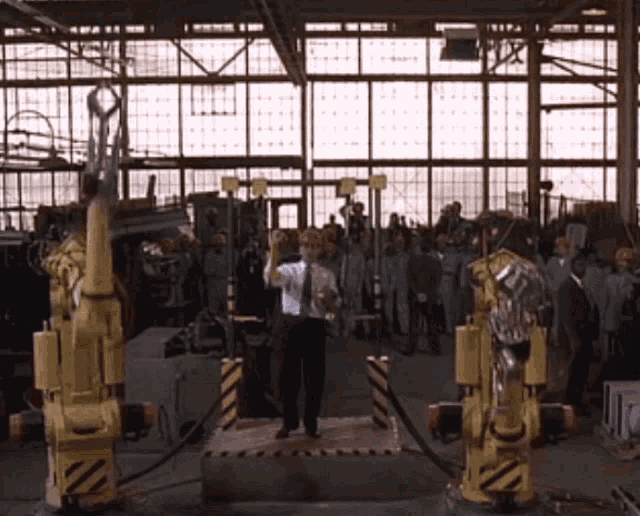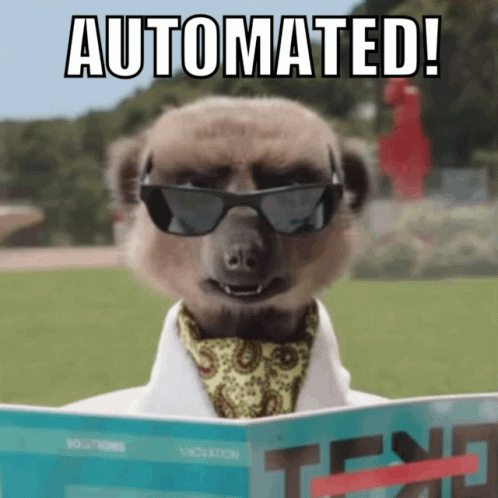Amelia, the CEO of a mid-sized manufacturing company, sat in her office, staring at a mountain of data that seemed impossible. Her team was overwhelmed with manual processes, from inventory management to customer service inquiries, leaving little time for strategic initiatives.
She decided to explore and enlist the help of an Artificial Intelligence automation agency. However, the journey was not as straightforward as she had hoped.
Amelia quickly discovered that not all agencies were created equal. Some promised quick fixes, while others lacked the industry-specific knowledge that her business required.
After several meetings filled with jargon and vague assurances, she felt more confused than empowered. It became clear that choosing the right partner was crucial for unlocking the efficiencies and innovations she envisioned.
Amelia’s story is not unique. For corporate CEOs, CXOs, and founders of tech startups, choosing an AI automation agency can be a game-changer.
With the right partner, organizations can streamline operations, drive innovation, and enhance their bottom line. However, how can decision-makers navigate this complex landscape with numerous agencies claiming to offer the best solutions?

This blog post serves as a comprehensive guide to evaluating AI automation agencies, providing a practical checklist that addresses the unique challenges faced by leaders in the corporate world.
What is AI Automation?
AI automation refers to the deployment of artificial intelligence technologies to automate tasks that typically require human intelligence.
This includes processes such as data analysis, customer service, and even complex decision-making. The benefits of AI automation extend beyond mere efficiency:
- Cost Savings: According to a McKinsey report, companies that implement AI can reduce operational costs by up to 30% within a few years. By automating repetitive tasks, organizations can significantly lower labor costs and redirect human resources to more strategic initiatives.
- Increased Efficiency: A study by PwC found that AI can increase productivity by up to 40%. AI systems can process vast amounts of data and execute tasks at speeds far beyond human capabilities, leading to faster turnaround times and improved service delivery.
- Scalability: AI automation allows businesses to scale operations without the need for proportional increases in workforce. This flexibility is crucial in responding to market demands and growth opportunities.
- Enhanced Data Analysis: AI algorithms can analyze large datasets to uncover trends and insights, enabling businesses to make data-driven decisions. For instance, companies like Netflix use AI to analyze viewer preferences, informing content creation and marketing strategies.
What is an Artificial Intelligence Automation Agency?
An AI automation agency specializes in developing, implementing, and managing AI-driven solutions tailored to meet the specific needs of businesses. These agencies provide a spectrum of services, including:
- Custom AI Solutions: Agencies work closely with clients to develop bespoke AI and business technologies that address unique business challenges. This could range from automating customer service inquiries to deploying predictive analytics for supply chain management.
- Integration Services: Implementing AI solutions often requires integrating them with existing business processes and technologies. Agencies ensure seamless integration, minimizing disruption and maximizing the effectiveness of the new systems.
- Ongoing Support and Maintenance: AI systems require continuous monitoring and optimization. AI agency provides ongoing support to ensure that the AI solutions remain effective and evolve alongside the business needs.
Choosing the right agency is crucial for leveraging AI for business automation effectively, making it essential for decision-makers to conduct thorough evaluations.

Why Do You Need an AI Automation Agency?
The need for an AI automation agency arises from several key factors:
- Expertise: Implementing AI solutions requires specialized knowledge that many organizations may lack internally. An agency brings expertise in AI technologies and industry best practices. For example, IBM’s Watson has been utilized by healthcare providers to improve patient outcomes through advanced data analysis, showcasing the impact of specialized knowledge.
- Resource Allocation: By outsourcing AI initiatives, companies can reallocate internal resources to focus on core business functions, enhancing overall productivity. This is particularly beneficial for startups that may not have the bandwidth to develop AI capabilities in-house.
- Faster Implementation: Agencies have the experience and tools necessary to deploy AI solutions quickly. A report by Deloitte indicates that organizations that partner with specialized agencies can reduce implementation time by up to 50%, allowing businesses to realize benefits sooner.
- Continuous Innovation: The AI landscape is constantly evolving. Partnering with an agency enables businesses to stay updated with the latest advancements and trends, ensuring they remain competitive. For instance, companies that leverage AI for marketing automation can adapt their strategies in real time based on consumer behavior analysis.
Key Factors to Look for While Choosing an AI Automation Agency
When evaluating potential AI automation agencies, it is crucial to consider several key factors that can significantly impact the success of your partnership and the effectiveness of the implemented solutions. Here’s a detailed breakdown of these factors:
1. Industry Experience
Look for agencies with a proven track record in your specific industry. Their familiarity with your sector’s unique challenges, regulations, and requirements can lead to more effective and relevant solutions.
- Understanding Regulatory Compliance: For example, an agency experienced in financial services will have a deep understanding of regulatory compliance and data security needs. They can design AI systems that not only enhance operational efficiency but also adhere to stringent regulations, reducing the risk of costly fines or legal issues.
- Tailored Solutions: Agencies that specialize in your industry are more likely to offer tailored solutions that address specific pain points. For instance, a healthcare-focused agency can create AI tools that streamline patient data management while ensuring HIPAA compliance, which a generalist agency may overlook.
- Case Studies and Testimonials: Request examples of previous work within your industry. Agencies that can showcase successful projects similar to your needs demonstrate their capability and understanding of the market dynamics.
2. Customization Capabilities
Ensure the agency can tailor AI solutions to meet your organization’s unique needs. A one-size-fits-all approach is rarely effective in AI automation.
- Flexible Solutions: Agencies that offer flexible solutions can adapt to your evolving business landscape. For instance, if your company undergoes a significant change in operations or strategy, a customizable AI solution can be adjusted to align with new objectives without requiring a complete overhaul.
- Collaborative Development: Inquire about the agency’s approach to customization. A good agency will involve your team in the development process, ensuring that the final product aligns with your specific workflows and goals.
- Scalability: Custom solutions should also be scalable. As your business grows, the AI systems should be able to expand and evolve, accommodating increased data volumes and more complex tasks.
3. Technological Proficiency
Assess the agency’s expertise in various AI technologies, including machine learning, natural language processing, and data analytics.
- Diverse Skill Set: Look for agencies that employ a diverse range of AI technologies. This proficiency is crucial for developing solutions that align with your business objectives. For example, if you need to automate customer service, the agency should have expertise in natural language processing to create effective chatbots.
- Integration with Existing Systems: The agency should demonstrate the ability to seamlessly integrate AI solutions or artificial intelligence tools for business with your current systems. This ensures that the new technology enhances rather than disrupts your existing operations.
- Continuous Learning: AI technologies are constantly evolving. An agency that prioritizes ongoing training and development for its team will be better equipped to implement cutting-edge solutions that leverage the latest advancements in AI.

4. Customer Support
Strong ongoing support is crucial for the success of AI initiatives. Choose an agency that offers comprehensive training and support services.
- Responsive Support Team: A responsive support team can help troubleshoot issues and optimize AI performance over time. Inquire about the agency’s support structure, including response times and availability.
- Training Programs: Ensure the agency provides training programs for your staff. Empowering your team with the knowledge to effectively use and manage AI tools is essential for maximizing your investment.
- Performance Monitoring: The agency should have mechanisms in place to monitor the performance of AI systems continuously. Regular assessments and updates can help identify areas for improvement and ensure that the AI solutions remain effective as your business evolves.
5. Success Stories
Request case studies or testimonials from previous clients to gauge the agency’s effectiveness and impact on their operations.
- Quantifiable Results: Look for agencies that can demonstrate measurable results from their past projects. This could include metrics such as reduced operational costs, improved customer satisfaction scores, or increased sales conversions.
- Diverse Client Portfolio: An agency with a diverse client portfolio indicates versatility and adaptability. It suggests that they can handle various challenges across different sectors, which may be beneficial if your organization operates in multiple industries.
- Long-term Relationships: Consider agencies that have maintained long-term relationships with their clients. This often reflects a commitment to delivering value and adapting to clients’ changing needs over time.
By focusing on these key factors, corporate leaders can make informed decisions when selecting an AI automation agency. The right partner will not only provide technological solutions but also offer strategic insights and support that align with your business goals, ultimately driving success in your AI automation journey.

How Bionic Can Help?
Bionic can improve the productivity of different organisations by enabling the delegation of various routine tasks to Bionic’s human taskers. They not only perform the tasks but also give feedback that can help ensure the quality of AI systems.
Bionic can also help incorporate Human in the loop and Grounding AI techniques in an organisation’s AI system. This can save companies from incurring damaging costs caused by AI hallucinations.
We specialize in crafting custom AI solutions tailored to your industry and unique business challenges. We also let customers create tailored tasks for taskers at Bionic to train the AI system on that task and execute those tasks for you. Our expertise spans various sectors and includes developing bespoke AI systems for manufacturing, finance, and healthcare.
Bionic AI adapts to changing human feedback making it hallucination-free and effective in dynamic environments. By mixing AI with human oversight, Bionic promises accurate and relevant results that foster customer satisfaction and trust.
Conclusion
Selecting the right AI automation agency is a critical decision that can shape the future of your organization.
By understanding what AI automation entails, recognizing the value of specialized agencies, and utilizing a structured evaluation process, corporate leaders can make informed choices that drive efficiency and innovation.
As you embark on your artificial intelligence for business automation journey, remember that the agency you choose is not just a vendor, but a strategic partner that can help you navigate the complexities of AI technology and drive meaningful change within your organization.
The right agency will not only provide cutting-edge solutions but also offer guidance, support, and a deep understanding of your industry’s unique challenges.
When evaluating potential partners, focus on agencies that demonstrate a strong track record in your sector, the ability to customize solutions to your specific needs, and a commitment to ongoing support and performance optimization.
Look for agencies that can showcase quantifiable results from previous projects and maintain long-term relationships with satisfied clients.
By prioritizing these key factors and conducting thorough due diligence, you can find an AI automation agency that aligns with your organization’s goals and values.
Remember, the success of your AI initiatives depends not only on the technology itself but also on the strength of the partnership you build with your chosen agency. As AI continues to evolve, staying ahead of the curve is essential.
Tired of wasting hours on tedious, repetitive tasks that drain your energy and distract you from your important work? Bionic is an easy-to-use business automation platform that takes care of your time-consuming, repetitive work. Request a demo now!